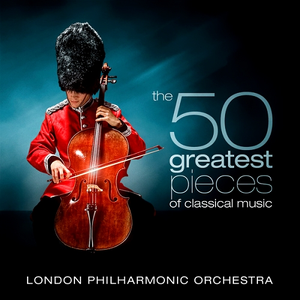
Les Contes D'Hoffmann: Barcarolle
Jacques Offenbach (20 June 1819 - 5 October 1880), composer and cellist, wa… Read Full Bio ↴Jacques Offenbach (20 June 1819 - 5 October 1880), composer and cellist, was one of the originators of the operetta form, a precursor of the modern musical comedy. He was one of the most influential composers of popular music in Europe in the 19th century, and many of his works remain in the repertory.
Offenbach was born in Cologne, Germany and was the son of Isaac Juda Eberst, a cantor, bookbinder, music teacher and composer. His father was living at a time when the Napoleonic edict required that Jews had to take inheritable family names. An itinerant violinist, he adopted the name Offenbach since he was already known to his audiences as a native of Offenbach am Main called "der Offenbacher". His son received the name "Jakob Offenbach" at birth, though he changed it to Jacques when he settled in France.
Offenbach moved to Paris in 1833 to study the cello. He found employment playing cello in the orchestra of the Opéra Comique, and wrote many pieces for the instrument. In 1844, he converted to Catholicism and married Herminie de Alcain. He returned to Germany with his wife and daughter in 1848 to avoid revolutionary violence in France, but returned a year later to become the musician most closely associated with the reign of Louis Napoleon (III). In 1850 he became conductor of the Theatre Français, but in 1855 rented his own theatre, the Bouffes Parisiens on the Rue de Monsigny, and began a successful career devoted largely to operetta and opéras comiques until his death.
His most popular works are still performed regularly today. His best-known operettas in the English-speaking world are Orpheus in the Underworld, La vie parisienne, La belle Hélène, La Périchole, The Grand Duchess of Gerolstein. Gaîté Parisienne is an often heard ballet score which is a pastiche of Offenbach melodies arranged and garishly orchestrated by Manuel Rosenthal in 1938.
Offenbach's final opera, The Tales of Hoffmann, was more serious than his other works, perhaps reflecting the eternal wish of the clown to be taken seriously. It was still unfinished at his death in 1880, but was completed by his friend Ernest Guiraud and premiered in 1881.
Offenbach is buried in the Cimetière de Montmartre, Paris, France.
Offenbach was born in Cologne, Germany and was the son of Isaac Juda Eberst, a cantor, bookbinder, music teacher and composer. His father was living at a time when the Napoleonic edict required that Jews had to take inheritable family names. An itinerant violinist, he adopted the name Offenbach since he was already known to his audiences as a native of Offenbach am Main called "der Offenbacher". His son received the name "Jakob Offenbach" at birth, though he changed it to Jacques when he settled in France.
Offenbach moved to Paris in 1833 to study the cello. He found employment playing cello in the orchestra of the Opéra Comique, and wrote many pieces for the instrument. In 1844, he converted to Catholicism and married Herminie de Alcain. He returned to Germany with his wife and daughter in 1848 to avoid revolutionary violence in France, but returned a year later to become the musician most closely associated with the reign of Louis Napoleon (III). In 1850 he became conductor of the Theatre Français, but in 1855 rented his own theatre, the Bouffes Parisiens on the Rue de Monsigny, and began a successful career devoted largely to operetta and opéras comiques until his death.
His most popular works are still performed regularly today. His best-known operettas in the English-speaking world are Orpheus in the Underworld, La vie parisienne, La belle Hélène, La Périchole, The Grand Duchess of Gerolstein. Gaîté Parisienne is an often heard ballet score which is a pastiche of Offenbach melodies arranged and garishly orchestrated by Manuel Rosenthal in 1938.
Offenbach's final opera, The Tales of Hoffmann, was more serious than his other works, perhaps reflecting the eternal wish of the clown to be taken seriously. It was still unfinished at his death in 1880, but was completed by his friend Ernest Guiraud and premiered in 1881.
Offenbach is buried in the Cimetière de Montmartre, Paris, France.
Les Contes D'Hoffmann: Barcarolle
Jacques Offenbach Lyrics
We have lyrics for these tracks by Jacques Offenbach:
Barcarolle Belle nuit, nuit d'amour, Souris nos ivresses, Nuit plus dou…
Belle Nuit O Nuit D'amour Le temps fuit et sans retour Emporte nos tendresses, Loin de…
The lyrics are frequently found in the comments by searching or by filtering for lyric videos
More Genres
No Artists Found
More Artists
Load All
No Albums Found
More Albums
Load All
No Tracks Found
Genre not found
Artist not found
Album not found
Search results not found
Song not found
@deutschegrammophon
Would you like to see more videos like this one in our DG YouTube channel?
@Arglarglarg
Yes, but you won't have many answers on a video posted ELEVEN YEARS ago :)
@aerozden
Yes, yes, yes, we would!..
@eygloaradottir4044
yes please!
@michah.3535
Absolutely yes :-)
@calixtoa3059
Si, estaría padre
@rusnicovaolga7789
The best duet in the entire world ❤❤❤❤
@SHN69
Listening to it at the moment: Yes. Of course. 😉
@eduardogarzon1465
Totalmente de acuerdo!
@ghw7192
Robert Merrill and Jussi Bjorlng: The Pearl Fishers